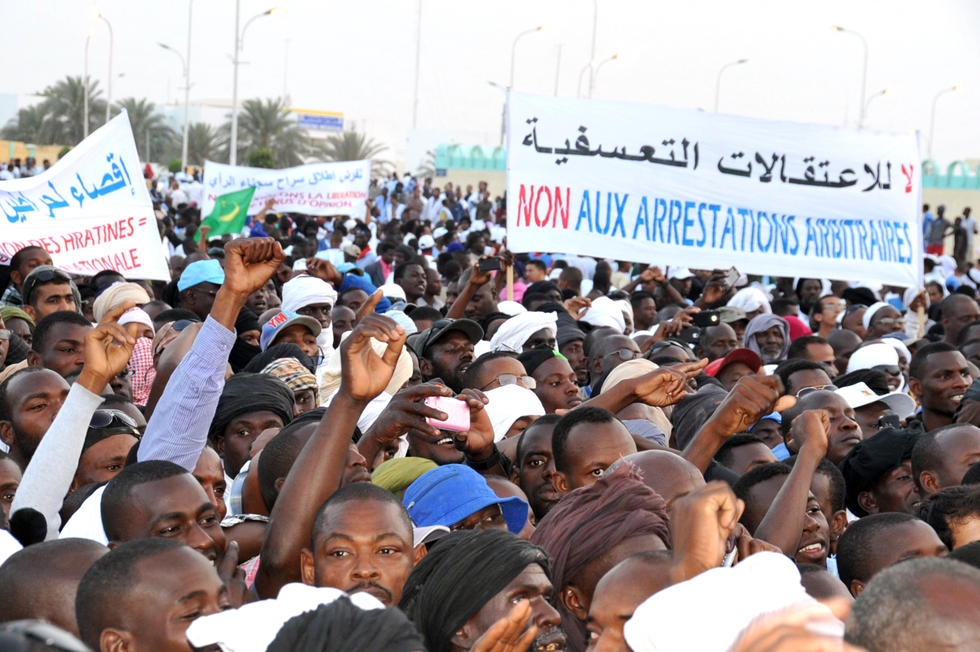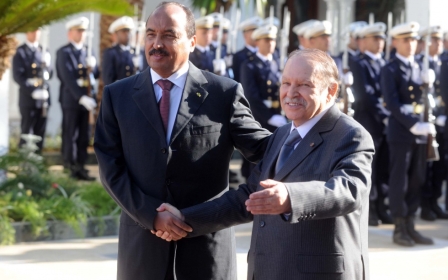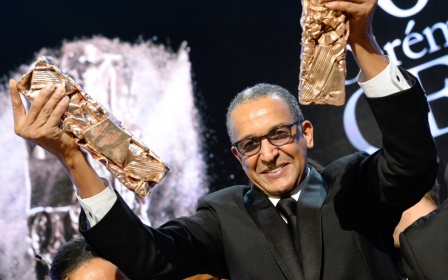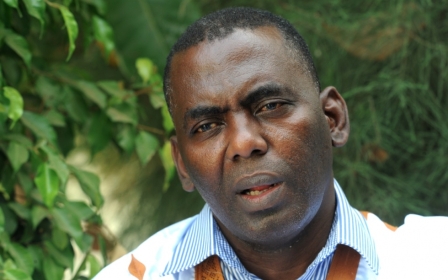Crowd besieges Mauritanian president's motorcade over jailed activists

Scores of protesters on Thursday besieged President Mohamed Ould Abdel Aziz's motorcade during his visit to the city where the runner up in last year's presidential elections is currently imprisoned.
Protesters carried signs criticising the president and demanding the immediate release of three anti-slavery activists, including former presidential candidate Biram Ould Dah Ould Abeid, jailed by authorities several months ago.
Security forces, however, quickly intervened to end the protesters' siege.
The three activists were arrested last November after being accused of staging unlicensed protests and involvement in violent activities.
Abeid, who is the descendent of slaves and the head of anti-slavery Initiative for the Resurgence of the Abolitionist Movement (IRA), is serving two years in the central Aleg prison, along with Bilal Ramdane and Djiby Sow, a civic and cultural rights campaigner.
In February, the activists went on hunger strike to protest their treatment by prison authorities.
IRA objected to the way the trio were being treated, denouncing the "abuse against them since their arrival at the Aleg and the squalid conditions [...] which are not in accordance with their status as senior human rights activists".
The IRA have vowed "to initiate and organise a series of demonstrations and intensify the peaceful activities of the anti-slavery struggle" in solidarity with the hunger strikers.
The men were jailed for two years on 15 January for "belonging to an illegal organisation, leading an unauthorised rally, and violence against the police".
Seven others who took part in anti-slavery protests in November were acquitted.
Amnesty International says the activists were arrested while trying to educate people about land rights in the west African country, where descendants of slaves are often forced to give up a portion of their crops to traditional masters.
Mauritanian authorities have accused the IRA of spreading "racist propaganda" and police have shut down its headquarters in the capital Nouakchott.
The country was the last in the world to abolish slavery with a 1981 prohibition, and since 2007 the practice has been officially designated a crime punishable by up to 10 years in prison.
But campaigners say the government has failed in the past to acknowledge the extent of the activity.
New MEE newsletter: Jerusalem Dispatch
Sign up to get the latest insights and analysis on Israel-Palestine, alongside Turkey Unpacked and other MEE newsletters
Middle East Eye delivers independent and unrivalled coverage and analysis of the Middle East, North Africa and beyond. To learn more about republishing this content and the associated fees, please fill out this form. More about MEE can be found here.




